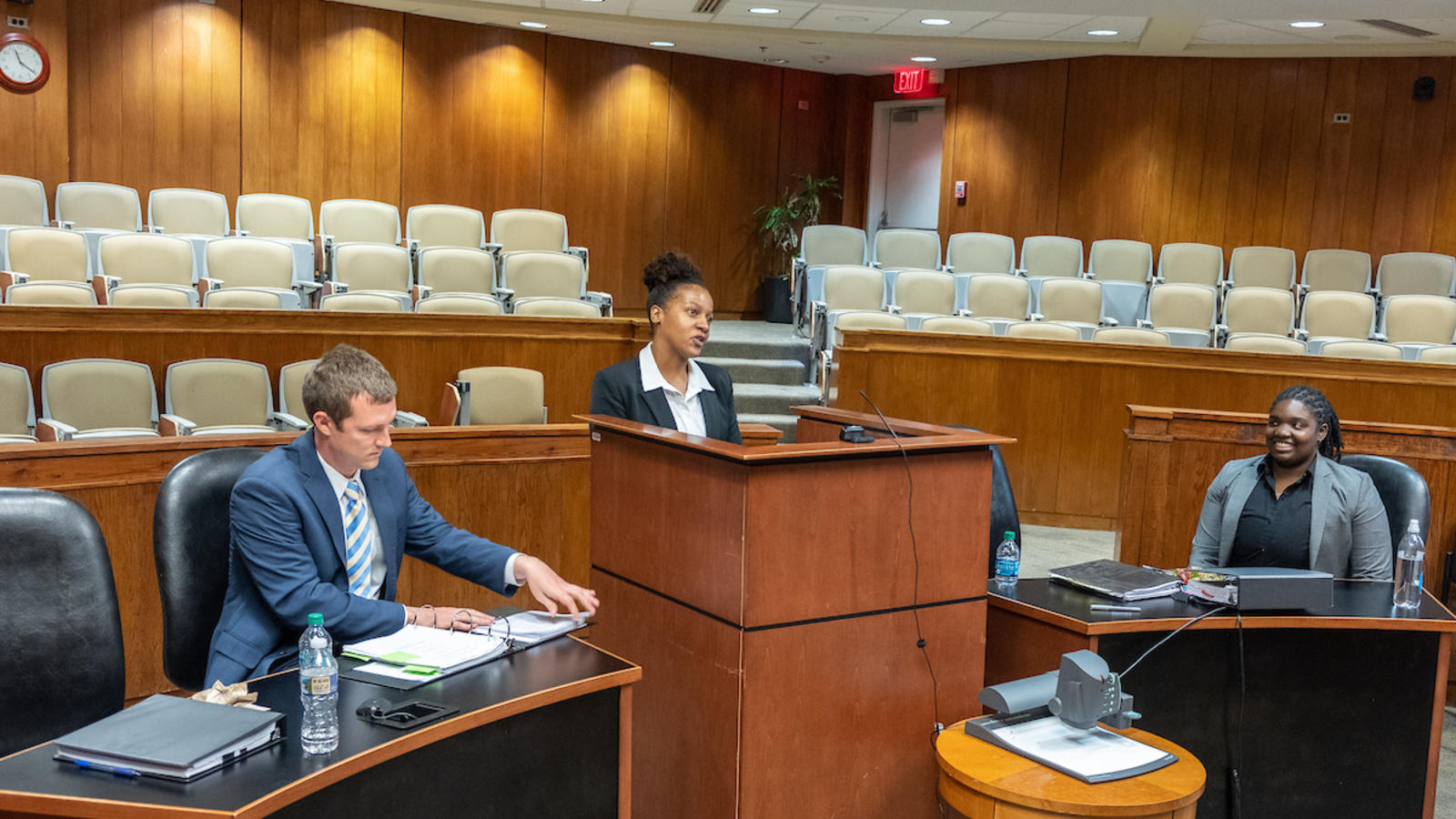North Carolina Central University School of Law is participating in the national expansion of the Justice John Paul Stevens Public Interest Fellowship Program in collaboration with other law schools and the John Paul Stevens Fellowship Foundation. This expansion honors United States Supreme Court Associate Justice John Paul Stevens’ lifelong dedication to improving the justice system by investing in the next generation of public interest and social justice lawyers.
“This fellowship aligns with NCCU School of Law’s mission of educating social justice change agents,” said Browne C. Lewis, dean, North Carolina Central University School of Law. “We are honored to join the other HBCU law schools in promoting a program that honors the legacy of Justice Stevens.”
This expansion will support thirteen Stevens Fellows at six participating law schools Florida A&M University College of Law, Howard University School of Law, Northern Carolina Central University School of Law, Southern University Law Center, Texas Southern University Thurgood Marshall School of Law, and University of the District of Columbia David A. Clarke School of Law. These fellows will join a national cohort of at least 75 Stevens Fellows in 2021, the largest group since the Fellowship program’s inception in 1997. The chosen students will be selected and announced in spring and will undertake their public interest placements at nonprofits and government agencies during the summer of 2021.
The Stevens Fellowship Program was created in 1997 in honor of Justice John Paul Stevens, reflecting his deep belief that a dynamic and effective justice system depends on a cadre of talented lawyers committed to the public interest. The Fellowship program provide grants to enable law students attending a network of participating law schools to work in unpaid public interest summer law positions.
In 2010, in celebration of Justice Stevens’ retirement from the Supreme Court, a group of his former law clerks established the Foundation to provide a formal home for the Stevens Fellowship Program. Over time, the Stevens Fellowship program has increased the network of participating law schools to 29 and has funded 550 Stevens Fellows who have worked at more than 300 public interest nonprofits or governmental agencies. Nearly 74% of former Stevens Fellows are now working in public interest legal positions.
Justice Stevens was named to the U.S. Supreme Court by President Gerald Ford in 1975. First seen as a moderate on many issues, Justice Stevens emerged as a consistently independent thinker over the decades of his tenure on the Court. Justice Stevens retired from the Supreme Court on June 29, 2010. At the time of his retirement, he was the oldest member of the Court and the third longest-serving justice in the history of the Supreme Court. Justice Stevens remained actively involved in the mission and work of the John Paul Stevens Fellowship Foundation until his death in July 2019.
The Stevens Fellowship Program at Howard University School of Law was launched in 2011 at the direction of Justice Stevens. The new expansion will bring the Stevens Fellowship program to five additional law schools at historically black colleges and universities. These law schools are among the nation’s most varied in terms of faculty and students and are well-known for their commitment to the public interest and preparing a varied group of law students for leadership.
